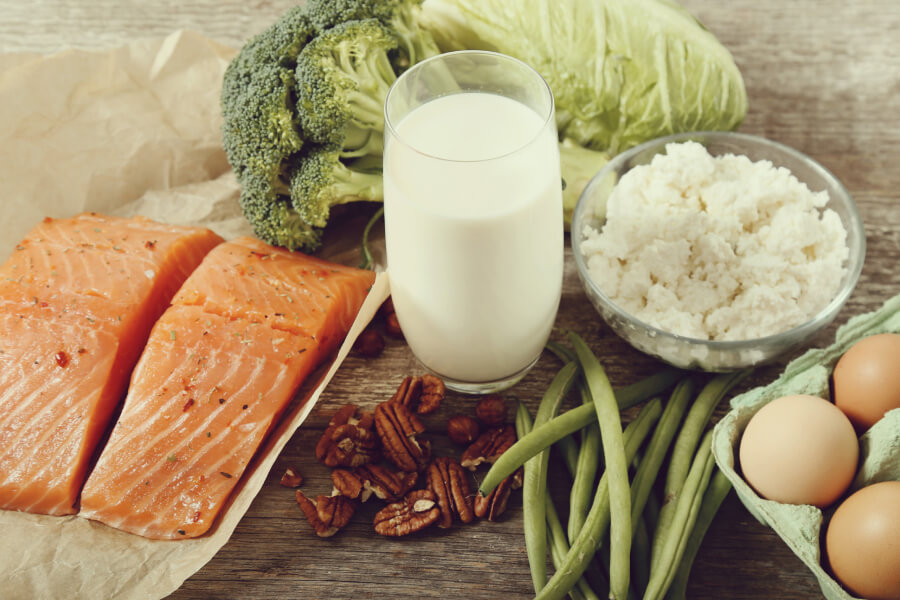When it comes to feeling fatigue and muscle pain in Women’s health. It is usually because of juggling in multiple roles and responsibilities.
But the good news is that certain vitamins can play a significant role in combating these symptoms. In this comprehensive guide. We’ll explore how vitamins can help alleviate fatigue and muscle pain in women, providing you with valuable insights to enhance your overall well-being.
Fatigue and Muscle Pain in Women’s Health
Fatigue and muscle pain in women are common complaints among women, affecting daily activities and quality of life. These symptoms can stem from various factors including:
- Hormonal changes
- Nutritional deficiencies
- Stress
- Lifestyle habits.
Understanding the root causes is essential to addressing the problem effectively.
What is the Link Between Fatigue and Muscular Discomfort?
Fatigue and muscle pain often happen together in women, creating a cycle where each makes the other worse.
Feeling tired can lead to weak and sore muscles, and ongoing muscle pain can sap your energy, making you feel even more exhausted. This connection shows why it’s important to treat both issues together for the best results.
Common Triggers of Fatigue and Muscular Aches in Women
Several factors can contribute to fatigue and muscle pain in women, including:
- Hormonal fluctuations: Menstrual cycles, pregnancy, and menopause can all impact energy levels and muscle health.
- Nutritional deficiencies: Lack of essential vitamins and minerals can lead to fatigue and muscle discomfort.
- Stress and anxiety: Chronic stress can cause physical tension and drain your energy.
- Lack of sleep: Inadequate rest can result in tiredness and muscle soreness.
- Physical inactivity: Sedentary lifestyles can weaken muscles and reduce stamina.
ESSENTIAL Vitamins to Relieve Fatigue and Increase Stamina
To combat fatigue and muscle pain in women or overall, you need to know that incorporating certain vitamins into your diet can be highly beneficial. Let’s delve into the key vitamins that can make a difference:
How is Vitamin C Beneficial?
Vitamin C is more than just your average vitamin. It plays a crucial role in supporting adrenal gland function, which is essential for synthesizing hormones involved in energy production. These hormones regulate your metabolism and how you respond to stress, both of which directly affect your energy levels.
How to Find Vitamin C in Food?
You can easily find Vitamin C in various natural foods. While citrus fruits like oranges, lemons, and grapefruits are well-known sources, you can also get your fix from berries, kiwi, bell peppers, and leafy greens like spinach and kale. Including these delicious options in your meals and snacks can ensure you meet your daily Vitamin C requirements and reap its energy-boosting benefits.
How is Vitamin E Beneficial?
Vitamin E acts as a potent antioxidant, shielding your cells from oxidative damage caused by free radicals. It’s like armor for your cells, protecting them from harm and ensuring they function optimally.
Supplementation Benefits
If you’re feeling fatigued, Vitamin E supplementation could provide an extra boost. Research suggests that Vitamin E supplements may improve energy levels, especially in individuals with low Vitamin E levels. Remember to consult with a healthcare professional before adding any supplements to your routine.
Dietary Vitamin E Delights
Boosting your intake of Vitamin E is as easy as adding certain foods to your diet. Nuts and seeds like almonds and sunflower seeds, along with vegetable oils, green leafy vegetables, and creamy avocados, are excellent sources. Including these tasty treats in your meals and snacks can help maintain optimal Vitamin E levels and support your energy levels.
How is Vitamin K Beneficial?
How Vitamin K Support Your Metabolism
Vitamin K does more than just aid in blood clotting. It also plays a role in energy metabolism and mitochondrial function. Your mitochondria are the powerhouses of your cells, responsible for generating energy. By supporting mitochondrial function, Vitamin K helps keep your energy levels up.
Insights from Research
Emerging research suggests a potential link between Vitamin K deficiency and fatigue. Studies have found that individuals with low Vitamin K levels may experience decreased energy levels and increased feelings of fatigue. Ensuring adequate intake of this essential nutrient is vital for your overall vitality.
Finding It in Food
Leafy greens like kale and spinach, along with cruciferous vegetables like broccoli and Brussels sprouts, are rich sources of Vitamin K.
How is Vitamin B6 Beneficial?
Vitamin B6, also known as pyridoxine, is a key player in converting food into energy. It’s involved in several metabolic pathways, including breaking down carbohydrates and fats to produce ATP, your body’s primary energy currency.
Additionally, Vitamin B6 helps synthesize neurotransmitters like serotonin and dopamine, which regulate mood and energy levels.
Recognizing Deficiency Symptoms
Fatigue and muscle in women are common signs of Vitamin B6 deficiency. Because Vitamin B6 is crucial for energy metabolism, not getting enough can hinder your body’s ability to produce energy efficiently, leaving you feeling tired and sluggish. Other symptoms may include irritability, depression, and difficulty concentrating.
Dietary Dos and Don’ts
To keep your energy levels up, include Vitamin B6-rich foods in your diet. Poultry like chicken and turkey, along with fish like salmon and tuna, are excellent sources. Incorporating these tasty options into your meals can help ensure you’re getting enough Vitamin B6 to power through your day.
Essential Minerals for Alleviating Muscle Pain
Calcium
Calcium is well-known for its role in bone health, but it’s also essential for fatigue and muscle pain in women including contraction and function. When your muscles receive signals from the nervous system to contract, calcium ions are released, allowing the muscle fibers to shorten and generate movement.
Supporting Muscle Recovery
After exercise, calcium helps regulate muscle contractions, promoting relaxation and recovery. Adequate calcium intake ensures your muscles can recover effectively, reducing post-exercise soreness and discomfort.
Food Sources and Recommendations
Dairy products like milk, cheese, and yogurt are excellent sources of calcium. Additionally, you can get calcium from leafy greens like:
- Broccoli
- Bok choy
- Fortified plant-based milk alternatives
- Tofu
- Canned fish with edible bones, such as sardines and salmon.
Including these calcium-rich foods in your diet can help alleviate muscle pain and support overall muscle health.
Potassium
Potassium helps transmit nerve impulses, allowing your muscles to contract and relax properly.
Preventing Muscle Cramps
Low potassium levels can lead to fatigue and muscle pain in women leads weakness and cramping. By ensuring adequate potassium intake, you can help prevent muscle cramps and spasms, promoting overall muscle comfort and function.
Food Sources and Incorporation
- Bananas
- Oranges
- Kiwi
- Apricots
As well as vegetables like potatoes, sweet potatoes, and tomatoes. Incorporating these potassium-rich foods into your diet can help alleviate fatigue and muscle pain in women and support optimal muscle function.
Managing Fatigue and Muscle Pain in Women: Supplements & Lifestyle Adjustments
Selecting the Appropriate Supplements for Energy and Recovery
- Look for high-quality products with verified purity and potency.
- Consult with a healthcare provider to determine the right dosage.
- Monitor your body’s response and adjust as needed.
Integrating Physical Activity and Stress Management Techniques for Improved Health
- Regular exercise: Incorporate both aerobic activities and strength training to improve muscle tone and energy levels.
- Stress management: Practice mindfulness, yoga, or other relaxation techniques to reduce stress and its physical impact.
- Sleep hygiene: Ensure you get adequate, quality sleep each night to support overall health.
Addressing Common Queries about Vitamins and Muscle Well-being
Identifying the Top Vitamins for Fatigue Alleviation
The top vitamins for alleviating fatigue include Vitamin D, B vitamins (especially B12 and B6), magnesium, and iron.
Recognizing Signs of Vitamin Deficiencies in the Body
Signs of vitamin deficiencies can include persistent tiredness, fatigue and muscle pain in women, aches, general weakness, poor concentration, and irritability.
Potential Side Effects of Vitamin Supplement Consumption
While vitamins are generally safe, excessive intake can cause side effects such as nausea, diarrhea, and stomach cramps. Always follow recommended dosages and consult with a healthcare provider.
Promoting Enhanced Energy Levels and Muscular Health Naturally
A holistic approach that combines a balanced diet, appropriate supplements, regular exercise, and stress management can significantly enhance energy levels and muscular health. By addressing both nutritional and lifestyle factors, women can achieve better overall well-being.
Accessing Additional Resources for Further Support and Information
- Books on nutrition and wellness
- Professional dietary consultations
- Reputable health websites and online courses
- Support groups and forums for women dealing with chronic fatigue and muscle pain in women
Conclusion
Feeling great is possible, and it starts with giving your body the nutrients it needs. Invest in your health and enjoy the benefits of enhanced vitality and reduced fatigue and muscle pain in women.
If you’re ready to boost your energy and reduce fatigue and muscle pain in women, take action today by integrating these essential vitamins into your routine. For personalized advice and to ensure you’re meeting your specific needs, consult with a healthcare provider.
For more insights and tips on maintaining optimal energy and muscle health, explore our additional resources and stay informed. Your journey to a healthier, more energetic life begins now.
FAQs
What vitamins help with muscle pain and fatigue in women?
Several vitamins play a crucial role in combating fatigue and muscle pain in women. Vitamin D, Vitamin B12, Vitamins E and C.
What tests are there for tiredness?
Tests for tiredness vary depending on individual symptoms and medical history. Common tests include blood tests to check for anemia, thyroid function, and vitamin deficiencies.
What role do nutrients play in fatigue?
Nutrients play a crucial role in combating fatigue and maintaining energy levels. B vitamins and magnesium are essential for energy production. Minerals like calcium and potassium support proper fatigue and muscle pain in women, reducing cramps. Vitamins C and E act as antioxidants, protecting cells from oxidative damage that can lead to fatigue.
What tests are there for tiredness?
Tests for tiredness, fatigue and muscle pain in women vary depending on individual symptoms and medical history. Common tests include blood tests to check for anemia, thyroid function, and vitamin deficiencies.








